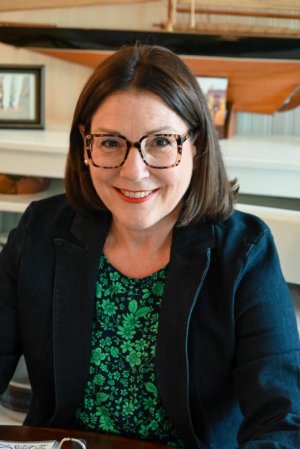Government of the people, by the people and for the people can be a messy business. Every bill the General Assembly considers passing in Dover affects multiple stakeholders, elicits conflicting opinions from constituents, and often requires lawmakers to weigh the pros and cons of different imperatives.
One of the imperatives we hear mentioned on a regular basis, particularly by Republicans, is the concept of local control. Currently, I am sponsoring a couple of bills – Senate Bill 75 and Senate Bill 159 – that opponents are depicting as violations of local control, even though neither one really is.
But that begs the question: Is local control something that should be protected?
Those of us who believe in democracy want people to have control over the forces that govern their lives, and that is why we have a political system that is theoretically accountable to the people. In Delaware, we have a General Assembly, comprising elected representatives from all over the state who together pass laws that affect all of Delaware. We also have more localized levels of government, including our county councils and municipalities.
The concept of local control sounds appealing because it invokes the idea of local people in control of their own communities, but unfortunately, it is often used as a way to block the decisions of democratically elected legislatures at the state or federal level. For example, in the 1960s, southern communities claimed local control in defense of Jim Crow segregation. In the 1970s and ‘80s, Phyllis Schlafly and her anti-ERA followers used the argument of local control to oppose gender equality. And for decades, the Christian right has used local control in a range of attempts to impose its version of Christianity on schoolchildren and to marginalize the LGBTQ+ community.
Consequently, while local control is not always a bad thing, it is not necessarily a good thing either. Thus, I would never espouse it as a guiding principle. And that is why I did not yield to arguments for local control last week when House Republicans tried to protect the right of local school boards to ban books.
And that is why I did not hesitate to co-sponsor two bills that opponents claim violate the principle of local control, even though neither one actually does.
The first bill, SB 75, limits the restrictions a county may impose on the operation of marijuana establishments. That bill does not violate local control. Instead, it prevents county governments from obstructing state law. The state Legislature, the body elected to govern the entire state, legalized the retail cannabis industry in 2023. It is not a legitimate function of county government to undermine that decision.
Similarly, I am proud to serve as a prime sponsor of SB 159, legislation that will clear the way for the US Wind project to move forward at a time when Delaware desperately needs more energy going into the regional grid. US Wind has received all the federal and state clearances it needs, but it cannot move forward until it can install four export cables to bring the energy onshore at 3R’s Beach and connect to the grid at a substation in Dagsboro – an area already zoned for heavy industrial use.
Yet despite that pressing need and all the benefits US Wind has offered our state, Sussex County Council denied the conditional-use permit that US Wind requested, even though its own planning & zoning commission voted unanimously to recommend approval, with one commissioner stating, “You’re basically going to be doing what’s already there.”
And that is the key point. SB 159 does not interfere with the rightful authority of Sussex County Council to control zoning, despite Republican talking points to the contrary. County council already zoned the area for heavy industrial. It was their decision!
Once that zoning decision was made, however, it is a violation of law for county council to deny one landowner the right to do what another landowner has already done – and Delmarva Power already built a substation at the same location. That is why the case has gone to court. But we cannot afford to wait years to resolve this issue. That is why the state Legislature has decided to act, and why I support SB 159.
Those of us who are trusted to make hard decisions in Dover know that whatever we decide will get pushback from someone. When I make decisions, I seek a balance between representing what the people in my district want, what the state needs, and what I believe is the right thing to do. Whether a bill violates local control is not my guiding principle.




















































